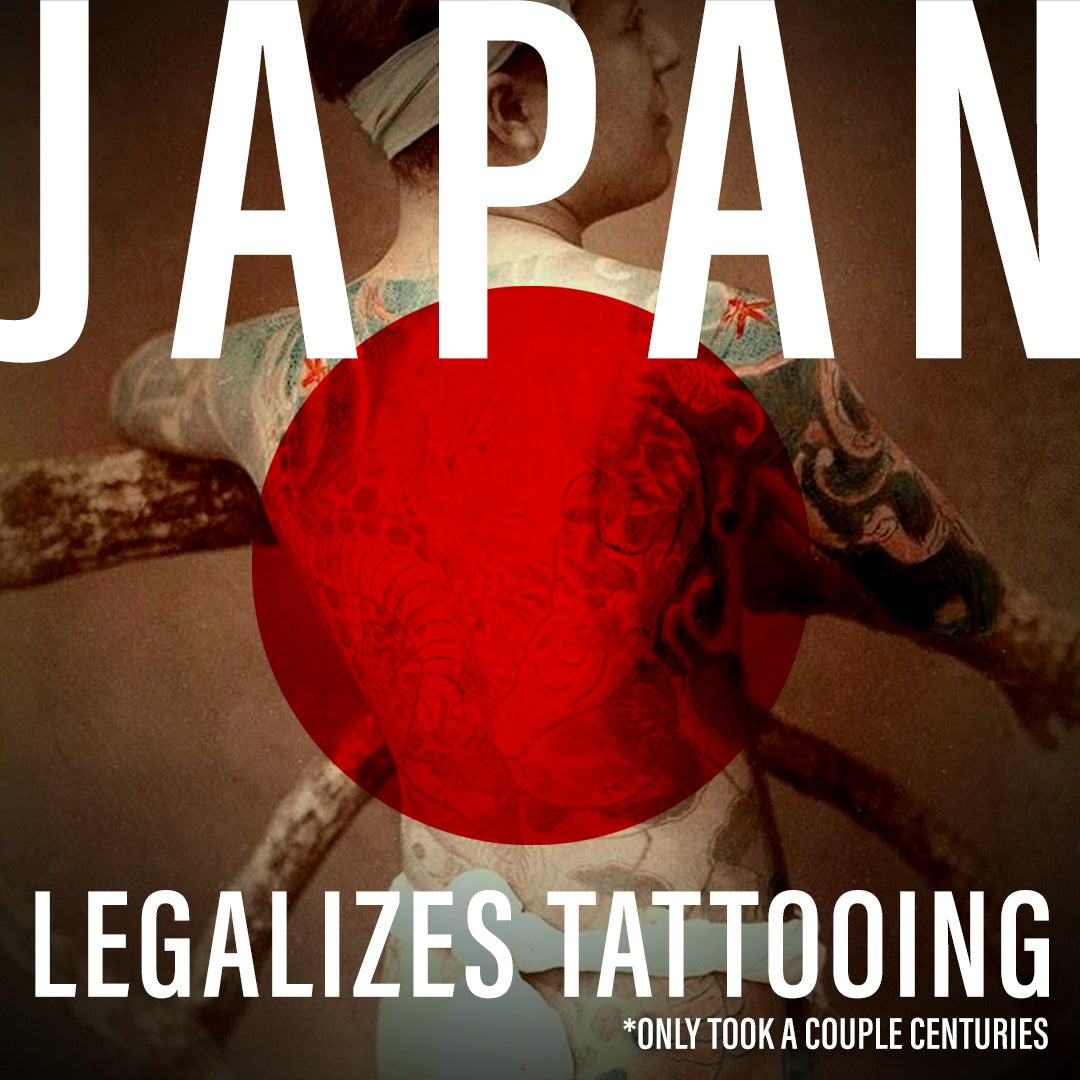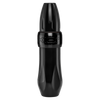
Like many regions, Japan has evidence of tattooing from pre-historic times. In Japan, evidence starts appearing all the way back in 10,000 BC, where it was suspected for use as decoration, identification, a test of pain tolerance and protection. In Japan tattooing is known as irezumi, which means inserting dye into the body. And as in many cultures, at some point tattoos fell out of favor. In part this happened in Japan because tattoos were imposed on criminals, and in part because the Yakuza Japanese mafia marked themselves with tattoos.

Irezumi: From Tradition, to Art to Criminal
So, tattoos became almost synonymous with criminal activity, even if there was a rich history behind tattooing that came from the work of the art renaissance provoked by block printing.
Politics and commerce further suppressed tattoo art. Aggressive commercial maneuvers by Westerners in the 1800s in Japanese waters caused Japan to want to expel all Westerners at any cost, ushering in a strict isolationist period. Japan was severely strong-armed decades later, however, into opening their economy. As Japan opened to foreigners and a new, modern era, they tried to keep a clean image of a civilized society and, thereby, banned tattoos.
Tattoo Artists in Japan Needed a Medical Practitioner License
The Japanese government - until Wednesday - considered tattooing necessitating a medical practitioner’s license, which is a disguised way to discriminate against tattooing.
In public places there are sometimes signs expressly prohibiting the exposure of tattoos and Japanese who tattoo themselves will stop short at the cuffs and ankles, where a kimono exposes their skin. According to some surveys, many hot spring bath houses and private bed and breakfasts flat out refuse to cater to people with tattoos - foreign or not, covered or not.
Although there are some exceptions, most local, traditional tattoo artists, known as horishi, work under the radar, often in their nondescript apartments and don’t call attention to themselves.
Japan’s Supreme Court Opens the Door for Tattoo Artists
In a major decision on Wednesday, however, Japan’s Supreme Court, in effect, allows tattoo artists to tattoo freely. Congratulations!

The original case was against a 32-year-old man who was found to have tattooed three people without a medical license, which up until this point was seen as a violation of the medical practitioner's law. The tattooer had been fined 150,000 yen ($1400).
The Supreme Court refused to accept the appeal of the lower court decision, who had deemed that tattooing did not, in fact, necessitate a medical license. The attorneys had argued that tattooing requires an artistic skillset that shouldn't be left exclusively to doctors. The lower court agreed and mentioned in the opinion that a new law should be made if there is need for legal restrictions to prevent risks from tattoo procedures. Legislation can reverse the court's decision, but we have to wonder if Japan's anti-tattoo society and government is now less offended by tattoos and will let this bear sleep?
The Future of Tattooing in Japan
Does this mean that the stigma against tattoos, especially the artful tattoos of the horishi, will fade?


















